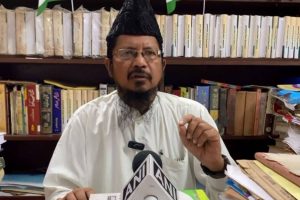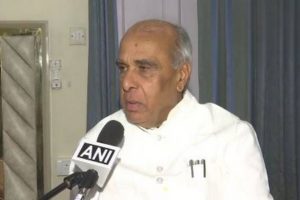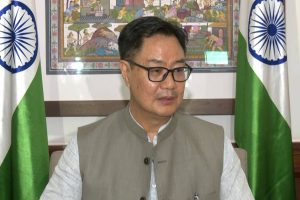The All India Muslim Jamaat has issued a fatwa against Tamil Nadu politician and actor Vijay, President of the Tamil Nadu Vijay Karthik (TVK) party, citing alleged misrepresentation of Muslims in films and controversial invitations to his Iftar party.
Maulana Shahabuddin Razvi Bareilvi, President of the Jamaat, told ANI that the fatwa was issued in response to growing discontent among Sunni Muslims in Tamil Nadu. He accused Vijay of inviting individuals associated with gambling and alcohol consumption to his Iftar gathering, while simultaneously pointing out that some of his films have portrayed Muslims as terrorists.
“He may be maintaining cordial relations with the Muslim community now, but his films have shown Muslims in a negative light. On top of that, hosting an Iftar party with gamblers and liquor consumers present has caused widespread anger. Based on the concerns raised by Sunni Muslims in Tamil Nadu, I issued a fatwa stating that Muslims should not support Vijay,” Maulana Razvi stated.
The fatwa controversy coincides with Vijay’s legal challenge to the Waqf (Amendment) Act, 2025, currently under scrutiny in the Supreme Court of India.
A three-judge bench led by Chief Justice Sanjiv Khanna, along with Justices PV Sanjay Kumar and KV Viswanathan, heard petitions challenging the constitutional validity of the Act on Wednesday. The court indicated it may issue an interim stay on certain provisions of the legislation, especially those allowing non-Muslim members in the Central Waqf Council and Waqf Boards, and empowering district collectors in Waqf property disputes.
The bench, while refraining from issuing an order immediately, emphasized the need to balance competing interests. “We will consider provisions that may stay, such as preventing the de-notification of court-declared Waqf properties and ensuring only Muslims are appointed as non-ex officio members of Waqf Boards,” the CJI noted.
The matter is set to continue on Thursday at 2 PM, after Solicitor General Tushar Mehta requested time to present arguments before the court passes any interim order.
This double development — the fatwa against Vijay and his involvement in the legal battle over the Waqf Act — underscores the complex intersection of religion, politics, and law currently playing out in India’s public discourse.





